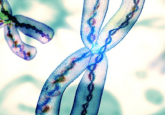ESMO18: Olaparib maintenance improves progression-free survival in advanced ovarian cancer by 3 years

SOLO-1 is the first, double-blind, randomized, prospective Phase III trial to evaluate front-line olaparib maintenance therapy after platinum-based chemotherapy in newly diagnosed advanced ovarian cancer with BRCA mutation.
In total, the study included 391 patients with high grade serous or endometrioid ovarian cancer who were in clinical complete or partial response after chemotherapy. The patients were randomized, 2:1, to olaparib tablets (n=260) or placebo (n=131) for 2 years.
The primary endpoint was investigator-assessed progression-free survival (PFS) from randomization. Median follow-up was 41 months.
Presenting the results at ESMO 2018 Congress (19–23 October 2018, Munich, Germany), Kathleen Moore (Stephenson Cancer Center, OK, US) reported: “The median PFS for patients who received placebo was only 13.8 months while the median PFS for those who received olaparib was not reached but looks to be approximately 3 years longer than the placebo group [HR was 0.30; 95% CI: 0.23, 0.41; p<0.0001].”
Moore continued: “While it is too early to say whether we have impacted the fraction of women who could be cured with their front-line therapy, the fact that it is estimated that over 50% of women on the olaparib arm were still progression free at 4 years as compared to only 11% for placebo speaks to this hope.”
“The results of SOLO-1 herald a new era in treatment for women diagnosed with advanced ovarian cancer who carry a BRCA mutation [a mutation in either of the BRCA1 and BRCA2 genes]. This study demonstrates an outstanding improvement in PFS over placebo, which is maintained even after the olaparib is stopped at 2 years,” concluded Moore.
Isabelle Ray-Coquard (Université Claude Bernard Lyon Est, Lyon, France) commented: “These are outstanding results in a worsening disease setting. Not only was olaparib efficacious but it was also shown to be well tolerated… The findings promise to change practice in this subgroup of patients with a BRCA mutation.”
Ray-Coquard continued: “Now, two questions remain. Can we expand this benefit to all high-grade serous carcinomas? Looking at existing results in relapse with PARP inhibitor maintenance in all comers, we can anticipate excellent results for all patients with high grade serous or endometrioid ovarian carcinoma.”
Source: www.esmo.org/Press-Office/Press-Releases/SOLO-FIGO-olaparib-ovarian-cancer-brca-Moore





